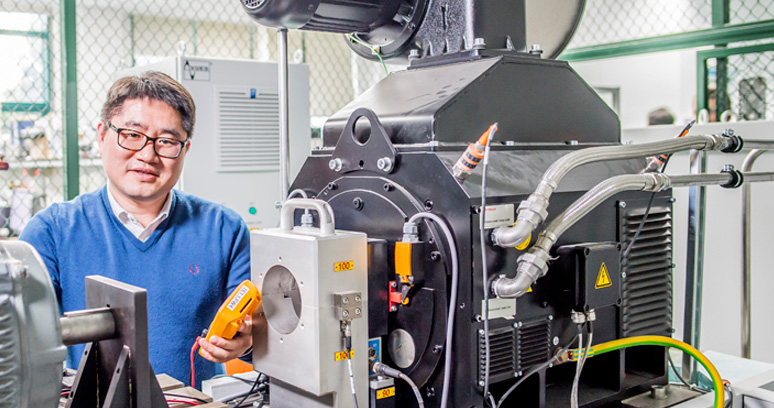
He (Alan) Zhang
Greener transportation
Professor in Electrical Drives
Can you explain your research?
My research currently focuses on developing state of the art electrical machine drive systems for future greener transportation which push existing technology boundaries, while propelling the new technologies to high TRL (Technology Readiness Level). Together with my team, we have developed high efficiency electrical propulsion for ships and cost-effective power electronics for electrical vehicles. The technology can also be transferred to other industries including advanced manufacturing, in areas such as high-performance robotic arms.
Where do you see this research heading in the future?
I can see that the motor drive systems will move towards higher frequency, improved efficiency and higher power density by adopting new material, better thermal management and advanced control. These next steps are very important in the context of transport electrification.
In my opinion any technology or science that is developed in the lab should apply to the real world - engineering bridges that gap.
Why did you join The University of Nottingham in Ningbo China?
I joined UNNC after 12 years in Nottingham where I got my PhD. I conducted many research project in the UK and I wanted to apply the technology in China. There are lots of opportunities here and we are well-supported. When I first joined the University, we started almost from zero. Now we have a whole comprehensive team, including more than 30 research PhDs and academics, along with a world-class facility to support our research.
What inspired you to become an electrical engineer?
When I was a boy, I always appealed to assembling and testing out tools and gizmos. I would pull motors off and turn them in to something useful like portable electric fans.
Then I did both of my undergraduate degrees and a postgraduate degree in electrical engineering. I have spent half of my life in this field. It’s very exciting and can make an impact to real life. In my opinion any technology or science that is developed in the lab should apply to the real world - engineering bridges that gap.